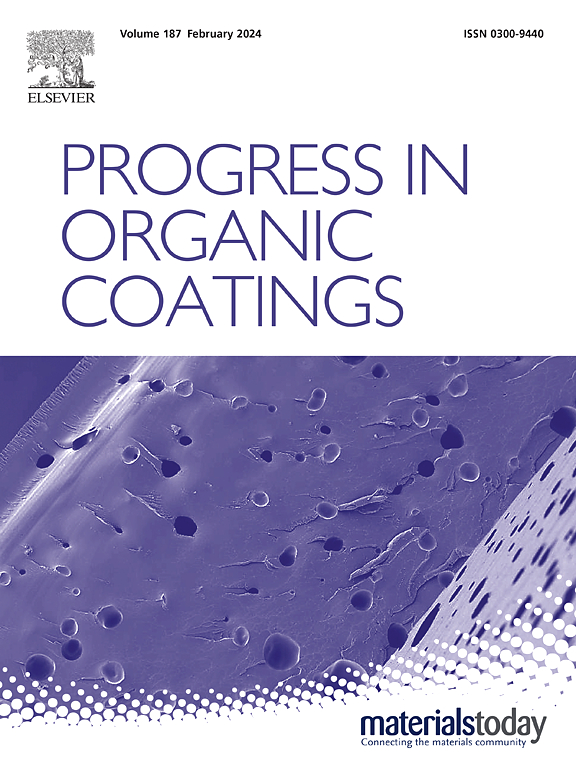Inhibition of microbiologically influenced corrosion of X65 steel using D-Tyrosine enhanced eco-friendly bacteriostat rhamnolipid
IF 6.5
2区 材料科学
Q1 CHEMISTRY, APPLIED
引用次数: 0
Abstract
Biofilm-induced microbiologically influenced corrosion (MIC) poses a significant challenge in various industrial and environment. Although eco-friendly bacteriostats are being developed and applied, sterilization requires larger doses of bacteriostats attributed to the protection of bacteria by biofilm, which is a burden on the environment. Therefore, reducing the role of biofilm and decreasing the dosage of bacteriostats to achieve bacteriostatic corrosion inhibition is an efficient method to inhibit MIC. In this work, D-Tyrosine (D-Tyr) is selected to enhance rhamnolipid (RL) for evaluating their effects on corrosion caused by sulfate reducing bacteria (SRB). The results show that RL can reduce the quantity of SRB and mitigate the MIC. Lower doses of RL can achieve effective corrosion inhibition by D-Tyr enhancement. The CLSM analysis indicates that D-Tyr disperses the biofilm allowing the RL to contact the SRB directly. The bacteriostatic corrosion inhibition effect of RL enhanced by D-Tyr is comparable to that of higher doses of RL alone.
求助全文
约1分钟内获得全文
求助全文
来源期刊

Progress in Organic Coatings
工程技术-材料科学:膜
CiteScore
11.40
自引率
15.20%
发文量
577
审稿时长
48 days
期刊介绍:
The aim of this international journal is to analyse and publicise the progress and current state of knowledge in the field of organic coatings and related materials. The Editors and the Editorial Board members will solicit both review and research papers from academic and industrial scientists who are actively engaged in research and development or, in the case of review papers, have extensive experience in the subject to be reviewed. Unsolicited manuscripts will be accepted if they meet the journal''s requirements. The journal publishes papers dealing with such subjects as:
• Chemical, physical and technological properties of organic coatings and related materials
• Problems and methods of preparation, manufacture and application of these materials
• Performance, testing and analysis.
 求助内容:
求助内容: 应助结果提醒方式:
应助结果提醒方式:


